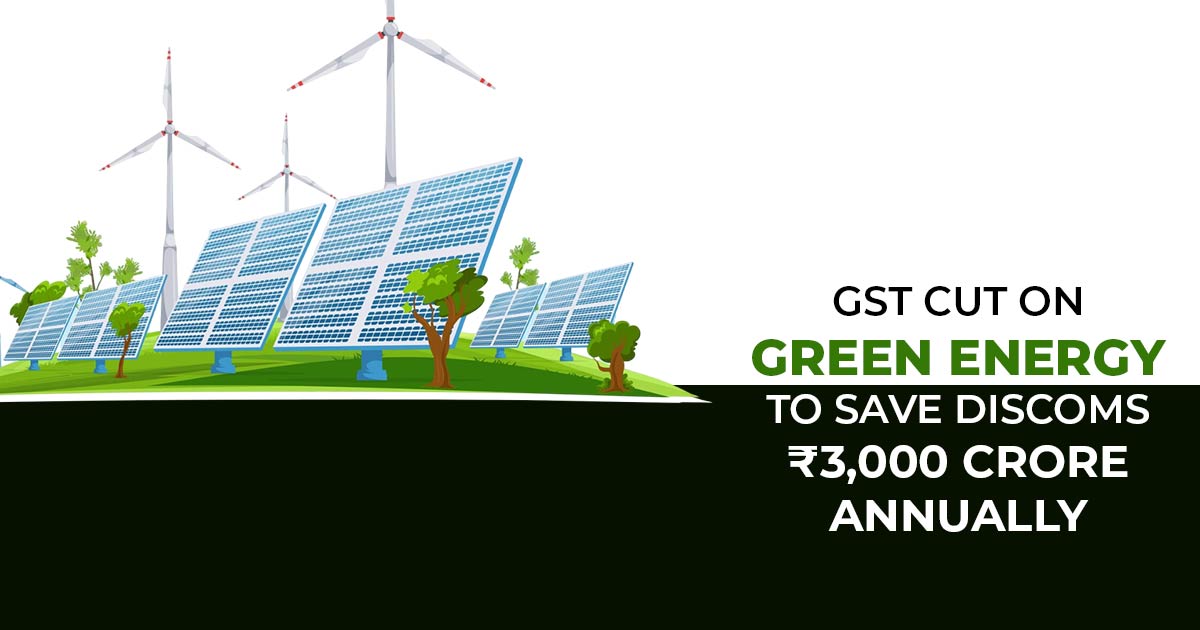
Recently, the government announced that reducing the Goods and Services Tax (GST) on the renewable energy value chain from 12% to 5% is projected to lower the annual power procurement costs for distribution utilities (discoms) nationwide by approximately Rs 3,000 crore.
This change is expected to significantly support the financial sustainability of discoms and enhance the overall economic landscape of renewable energy in the country.
The savings might not be directed to consumer tariffs cut since they do not show the costs due to the inadequate upward revisions. As per the ICRA rating agency, the tariff revisions for 2025-26 cleared by 23 out of 28 states till August put the median increase at the all-India level at 1.9% against 2.1% in 2024-25.
Read Also: No More Leeway for Non-Compliance: FM Sitharaman to Monitor GST 2.0 Rate Cut
The gap between discom’s cost of supply and revenue realisation shall be reduced from the GST cut, which ICRA analysed at 45 paise per unit. Line losses and billing inefficiencies are the factors that contribute to the gap that lessens the power purchase costs shall furnish relief for discoms, which ICRA cited that it has a gross debt load of Rs 7.4 lakh crore as of March 2024, up from Rs. 6.6 lakh crore in the previous year.
With the GST cut, the tariffs become levelled for green power as it becomes competitive as project costs drop.
The cost of a grid-level solar project analysed by the renewable energy ministry is nearly Rs 4 crore per MW, which shall drop down by Rs 25 lakh. For a 500 MW solar park, this reduces Rs 100 crore for the project.
Prime Minister Narendra Modi’s rooftop solar scheme shall get a boost from the GST cut. This makes households, especially among those with modest or lower incomes, more likely to purchase the same.
According to the ministry, Rs 9,000–10,500 can be lessened on a typical 3,000-watt rooftop solar system. Low-cost solar pumps covered under the PM KUSUM scheme will benefit farmers and off-grid projects in rural or remote areas.
Recommended: GST Impact on Solar Project Prices in India
The manufacturers of renewable energy will get many advantages as lower GST will make them competitive due to a drop of 3-4% in component costs. It enhances rapid expansion in domestic manufacturing, leading to employment.









